Q&A: Matt Spaccarelli, GM and Co-Winemaker, Benmarl Winery

Matt Spaccarelli in the cellar at Benmarl Winery in Marlboro, NY
By Lenn Thompson, Editor-in-Chief
Photo courtesy of Benmarl Winery
Matt Spaccarelli is new to the wine business, but has immersed himself in every aspect of Benmarl Winery's operations, now serving as the general manager and co-winemaker with Kristop Brown. Born just across the river in Hopewell Junction, Matt attended Fordham University where he was "completely convinced that track & field was my true major." He still holds the school record in the decathlon.
He was still at Fordham when his parents bought Benmarl in 2006, but he worked there part time until he graduated in 2007 with a BA in political science with a concentration in public policy. Upon graduation, he joined the new family business full time as general manager and assistant winemaker. Since then he's moved up to co-winemaker with Kristop.
This year he added president of the Shawangunk Wine Trail to his resume. All by the age of 26.
And now, onto our standard questions:
What (and where) was the first wine you remember drinking?
Growing up I remember sipping wine out of my grandpa’s glass. He would always have a jug of something red under the table and I would sit on his knee as he smoked his filterless Lucky Strikes. As for the first wine that I remember having a glass (more like a paper cup) of was a Portuguese red called Borba. Again, it was with my grandfather.
What event/bottle/etc made you decide that you wanted to be in the wine industry?
Besides my family becoming involved with Benmarl, I don’t think that there was a single event or bottle that made me fall in love with the wine industry. I think it was more of a series of events starting with my upbringing, making wine in the garage.
After that, it was my introduction to agriculture (especially local agriculture) by my brother Stephen, followed by my study of public policy at Fordham University. It is a combination of these and many other events (and wonderful bottles of wine) that have pushed and pulled me into not only winemaking, but the culture, politics and lifestyle that surround it.
Which of your current wines is your favorite and why?
We just bottled our 2008 Hudson River Region Cabernet Franc and it seems to be very promising. We decided to bottle this wine unfined and unfiltered and it has pushed it into a direction that I would like to see all of our wines go, more terroir driven. As our vineyards mature and as we get more vines in the ground, I hope to grow more wines that reflect not only who we are, but where we are from as well.
I think that this wine is our first step in that direction.
What has surprised you most about being a member of the Hudson Valley wine community?
I would have to say that it is the “community” of the Hudson Valley Wine Industry that has surprised me the most. We are realizing more and more that without regional attention we have little opportunity to gain recognition for the quality wines that are being made here. Because of that, we work together in grass roots efforts to push each other forward. It’s less of a competition then it is a group effort. It is everyone’s awareness of our potential and willingness to cooperate that has been most surprising.
Other than your own wines, what wine/beer/liquor most often fills your glass?
I would say that it is a 50/50 split between wine and beer, with an occasional gin and tonic on a hot day or rye whiskey when its cold out. There is not a style of wine or beer that I truly dislike. Perhaps it’s the winemaker in me that finds something interesting about them all. However, I do tire quickly of “fruit bomb” and high alcohol new world wines, hopped up IPA’s or Russian Imperial Stouts. Don’t get me wrong, I really enjoy them from time to time, but I guess it’s a balanced beverage that most often fills my glass.
Is there a 'classic' wine style or beer and food pairing that you just can't make yourself enjoy?
Foie gras. The flavor is just not that interesting to me. Combine that with the practice of farming foie gras and it is not enjoyable. I am by all means an omnivore. I consume farm-raised meat as well as self-harvested wild game, but for me foie gras crosses the line of excessive.
Wine enjoyment is about more than just the wine itself. Describe the combination of wine, locations, food, company, etc. that would make (or has made) for the ultimate wine-drinking experience.
No matter how good the food, how fine the wine, or how beautiful the setting is, the company you keep is paramount. Without good company it is difficult to enjoy anything.
Secondly, it is the process that can also make the wine drinking experience enjoyable. A fine meal and wine paring at a restaurant is wonderful, however I prefer cooking at home using ingredients from the garden and meat harvested on the estate. The more you are invested into the experience, whether it be harvesting the food your self or know the farmer that raised it for you, crafting the wine in your own cellar or understanding the philosophy behind the wine you choose to drink, the greater the enjoyment.




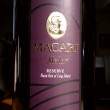
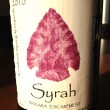
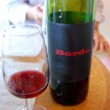
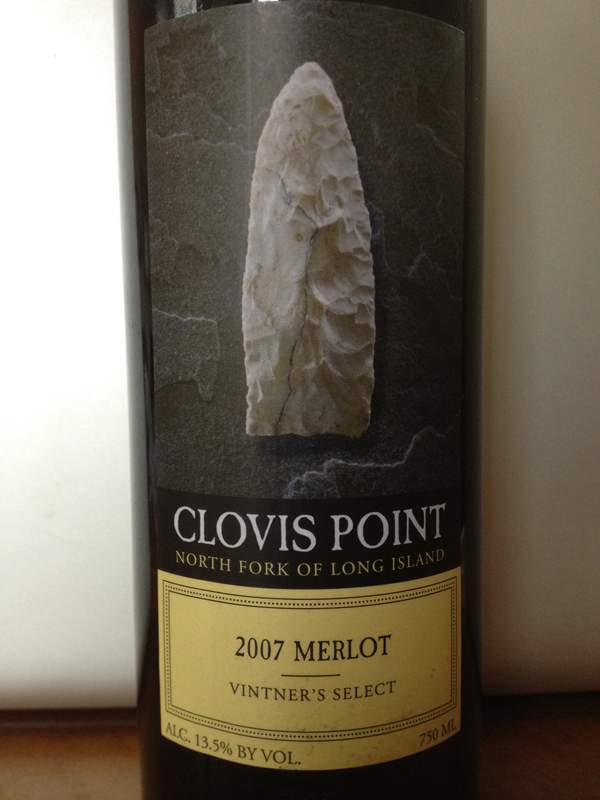
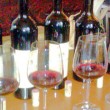
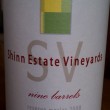
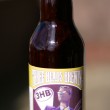
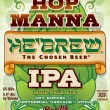
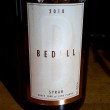
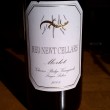
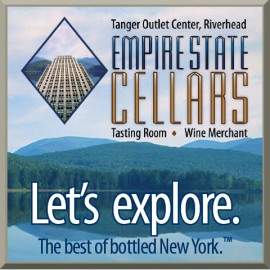

Matt -
You say, “We decided to bottle this wine unfined and unfiltered and it has pushed it into a direction that I would like to see all of our wines go, more terroir driven. As our vineyards mature and as we get more vines in the ground, I hope to grow more wines that reflect not only who we are, but where we are from as well.”
Can you explain why fining and filtering takes away from a wine’s sense of place? Don’t read that question as being accusatory - or anything else besides curious. It’s a very interesting statement.
Cheers - nice answers. Look forward to visiting you down in HV in 2010.
Evan,
We fine and filter wine in order to remove certain aspects or characteristic.(Keep in mind I’m talking about dry wines, mostly dry red wines here.) Perhaps harsh tannins are a problem or the chemistry leaves the wine unstable. Hopefully, if done properly, we remove only the off characteristics or qualities and leave the good ones. That being said, we are taking away from the wines natural state. That wine has now been altered, and that’s a good thing. Why would we have fined of filtered in the first place if we didn’t want to alter the wine. We want to produce wines that are consistent and enjoyable, not just natural. That is why 90% of our wines are filtered. I believe that filtering or fining a wine can make the wine better. However, if we can start producing more wines that do not need adjustment (fining or filtering), the wines will have more of a sense of place. They will tell the whole story not just a paraphrased version that highlights the good parts. Its that paraphrasing that takes away from a wines sense of place.
I hope that answers your question in one way, shape or form. Feel free to prod into it more. It might help me explain in a bit better. Hope to see you in the tasting room soon.